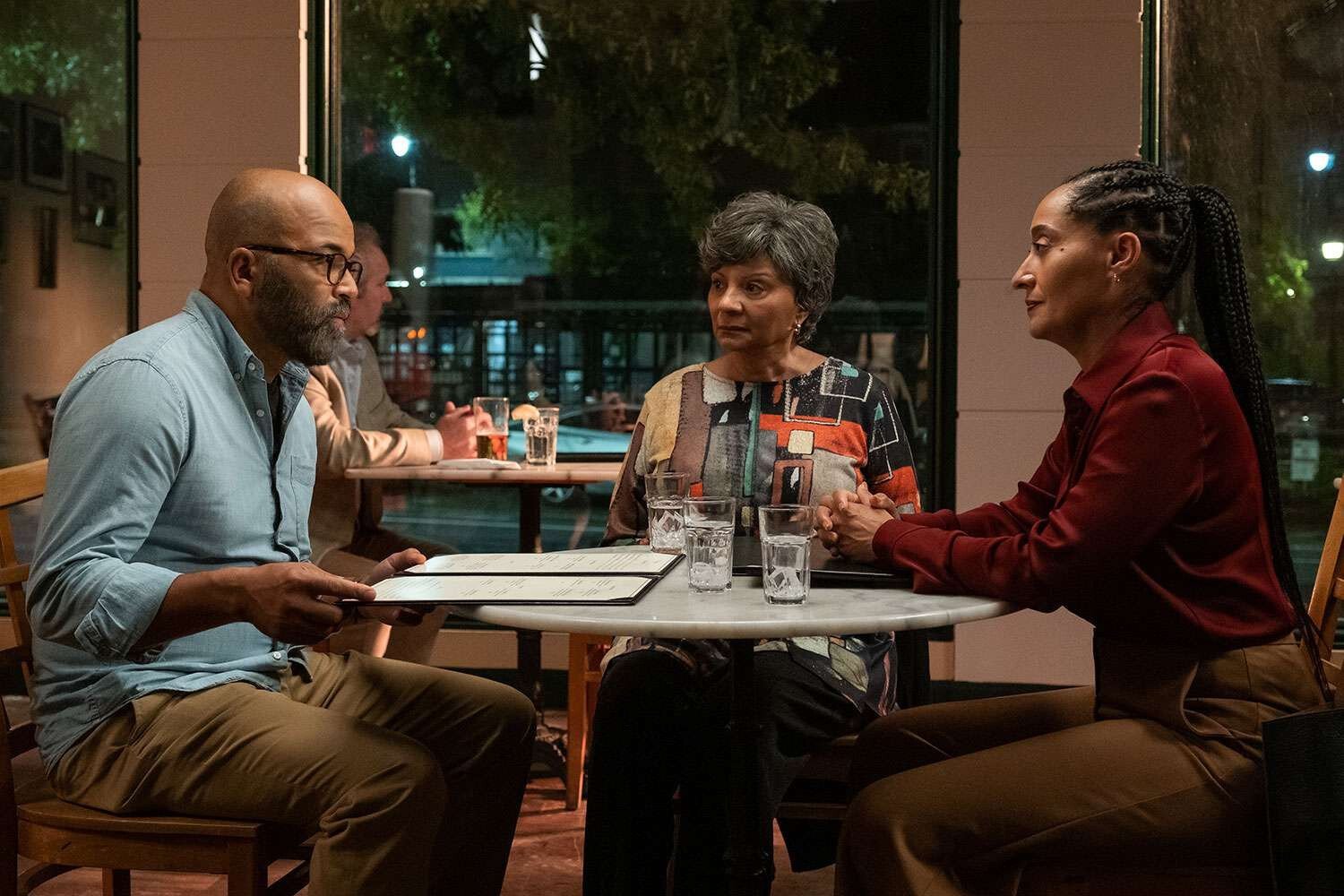American Fiction
A novelist who's fed up with the establishment profiting from Black entertainment uses a pen name to write a book that propels him into the heart of the hypocrisy and madness he claims to disdain.
American Fiction, Cord Jefferson
American Fiction, Cord Jefferson’s directorial debut and Oscar nominated film, adapted from Percival Everett’s novel Erasure (2001), charts the story of English Professor Thelonius ‘Monk’ Ellison (Jeffrey Wright). He grows creatively, commercially and academically frustrated when his not-black-enough-books don’t sell and his students refuse to engage with his set texts because the coarse language ‘the N word’ used offends their white sensibilities.
Having to remove his work on mythology from the African American Studies section of a bookshop, he witnesses his literary contemporary Sinatra Golden (Issa Rae), succeed by playing up to cultural stereotypes and fends off requests from his agent (John Ortiz) to provide ‘Black’ material; whilst simultaneously navigating his sister’s sudden death and mother’s deteriorating health, leaves him at a figurative breaking point.
In the most powerful scene in the movie, Monk––with the assistance of a conjured up stereotypical deadbeat, drunk father and a son driven to crime by his dad’s absenteeism–– writes the trope-filled ‘My Pafology’. He later persuades his agent to tout the story to publishers, though whether initially just to prove the commodification of Black trauma to himself and those around him, or to actually benefit from money needed to pay his Mum’s residential care fees isn’t overtly obvious.
Monk is offered a $750,000 advance on the novel as the book becomes a New York Times bestseller, a literary award winner and is snapped up for a profitable screen adaptation. With a moral conundrum faced by Black creatives the world over; does one continue to stand against those who view Black stories as financial fodder, or join them in the proverbial trough.
“For a film categorised as ‘comedy’, American Fiction elicited very little laughter from myself or other members of the audience during the 2-hour showtime”
American Fiction fails at everything it sets out to do, doing too much and nothing all at the same time; the result being a meandering middle ground. The satire is bumbling and obvious, think quips such as, “at least she ain’t white”. When he introduces his girlfriend Coraline (Erika Alexander) to the family, with only two scenes: in one scene, a white literary judge exclaims “we should really be listening to black voices right now” whilst silencing the two in the room, and second scene, a director is offered multiple endings for the screen adaptation but opts for one that sees the Black male murdered by police in a hail of bullets, evokes the soft irony that makes satire sophisticated.
For a film categorised as ‘comedy’, American Fiction elicited very little laughter from myself or other members of the audience during the 2-hour showtime. Although the midday, midweek viewing, and small number of people may go some way to explaining the muted reception.
One might argue that the pairing back on comedic value was a strategic decision, a reinforcement that Black lives don’t equate to entertainment. A conscious effort to allow the character space to explore his humanity and emotions felt as a result of his personal, and familial struggles. However, the only emotion expressed is anger: at his brother for having drugs and men in the house upon their mother’s arrival, and girlfriend for reading and enjoying the book he wrote under a pseudonym, were overtly exhibited––an aggressive Black man trope in and of itself.
Monk’s ignorance of his mother’s onset of Alzheimer's because his sister (Tracee Ellis Ross) was around to manage the symptoms, the presence of staff and second homes, and his gay brother (Sterling K. Brown) belatedly trying to find and own his identity are elements of the film that touch on subjects such as: cultural influences which apportion the majority of caring responsibilities for elderly parents onto female offspring, the existence of a thriving Black middle class, and Black queer individuals who struggle with the intersectionality of their race and sexuality respectively.
However, by focusing so heavily on trope denunciation it feels like American Fiction missed the opportunity to delve deeper into Black stories and draw a more accurate tapestry of African American truth.
Release Date: February 2nd, 2024
Director(s) Cord Jefferson
Writer Cord Jefferson
Producer Ben LeClair, Nikos Karamigios, Cord Jefferson, Jermaine Johnson
Starring Jeffrey Wright, Tracee Ellis Ross, John Ortiz, Erika Alexander, Leslie Uggams, Adam Brody, Issa Rae, Sterling K. Brown
Cinematography Cristina Dunlap
Distributor: Orion Pictures
Runtime: 117 minutes.

